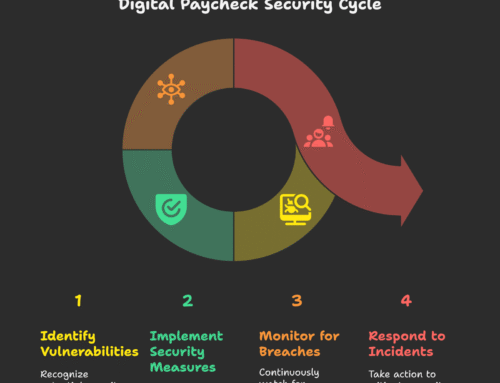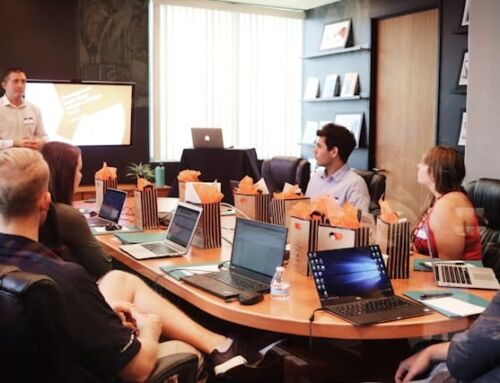The modern workplace has adopted different work styles that may not have been common previously. Many companies are getting more globalized, employing workers from around the globe, while domestic employees now have the liberty to choose their work settings. Nevertheless, work styles and schedules are getting more flexible.
However, despite the changes in these professional settings, your staff needs to hold meetings to collaborate and manage tasks and projects successfully. Whether you’re having a virtual or face-to-face meeting, making these meetings more productive can be challenging. Should you need to settle something with a client or a supplier, it’s wiser to try mediation centres to hold effective meetings together.
Fortunately, you can apply these valuable tips to make your staff meetings more productive:
1. Consider Having Breakout Rooms
If your company has shrunk your office due to transitioning to remote working styles, you might not have the liberty to hold large meetings in the office anymore. One effective solution or alternative is to find a breakout room for your company. Establishing some ground rules for participation is essential, and asking everyone to follow them. If you want local employees to attend the meeting personally, send the announcements at least a week or a few days early. Likewise, you can make work more fun and practical at the same time when people can meet up altogether sometimes.
Almost all successful businesses hold large meetings regularly. It is possible, however, for individuals in an expanding company to feel left out in the event of these large meetings. Attendees should feel valued, and you should ensure they get the most from conferences. This is your responsibility as the manager. Breakout rooms are effective solutions for this. You can assign two hosts for the meeting; one who covers the general agenda and the co-host who will assign employees in different breakout rooms.
Breakout rooms are excellent tools for digging into details or brainstorming together in small groups or one-on-one setups. This is the best meeting method if you have a specific agenda that requires brainstorming. As the meeting host, you can send messages to breakout rooms and visit each room to ensure everyone is on task. Assign a person to take minutes of each meeting to help everyone to refer to the agenda and progress later on. Even if someone misses a meeting, they can stay on top of the project by referring to the minutes.
2. Devise An Agenda And Stick To It
When there is no agenda for a meeting, chaos can ensue, and little work can be accomplished. Therefore, ensure everyone is aware of the agenda before scheduling a meeting. It can be easy to steer off the topic, but having an agenda eventually allows everyone to focus more on the issues at hand.
Discussing this with the higher-ups and your staff members is the key to deciding on an agenda. Generate concerns about projects and tasks, then discuss them during meetings. It’s essential to tackle them during sessions to continue working productively. You can track action items more efficiently with a clearly defined agenda. Besides, having a plan makes everyone’s responsibilities clear and allows them to follow project schedules.
3. Utilize Effective Meeting Technology And Tools
Using the right technology and tools is vital in making meetings productive. Virtual sessions can run effectively using videoconferencing software, but more devices are necessary when holding a face-to-face meeting. For instance, your rented breakout room should have the tools and equipment you need for the meeting. Communicate ahead so they can prepare all these tools.
Depending on your meeting’s needs, some possible tech and tools to prepare include projectors, laptops, screen-sharing software, and others. Get the presenters’ opinions and decide what other tools they need to present comfortably.
4. Minimize Distractions
A meeting can be productive when there are lesser distractions. This is the ultimate reason why many companies rent out breakout rooms. Some people find it easier to work from home than others, while others do not have ideal home offices. Depending on your meeting setting, make everyone aware of eliminating distractions during meetings. Ensure all participants are in a well-lit, closed room where pets and household members cannot interfere. Require everyone to have a good headset with a clear mic.
When your meetings are a combination of virtual and face-to-face, ensure that everyone is focused and invested. Allow everyone to speak their ideas and thoughts. It’s helpful to set out rules before starting the meeting so that everyone knows the proper etiquette for such meetings. Before the meeting, guide your employees through any virtual meeting software they might not be familiar with and help them until they’ve learned how it works.
5. Make Meetings Seem More Personal
There is something personal about face-to-face meetings, which is why some offices decide to have one now and then. These meetings are usually productive and focused, dedicated to building solid relationships. However, virtual meetings can also be more personalized by eliminating distractions and allowing attendees to speak and participate in discussions.
Strengthening your active listening skills is essential to make meetings more personal. Motivate everyone to give their undivided attention to the one presenting. Moreover, inject opportunities for everyone to interact and get to know each other better. Thankfully, breakout rooms can help in this situation.
Conclusion
Whether you’re the meeting host, organizer, or attendee, it’s crucial to prepare the meeting to be something everyone can learn from and gain knowledge they can use in the long run. After all, you’ve spent time and money to execute an event for everyone to attend. Hopefully, with the tips mentioned in this article, you can make your physical or virtual meetings more successful and productive.







Leave A Comment